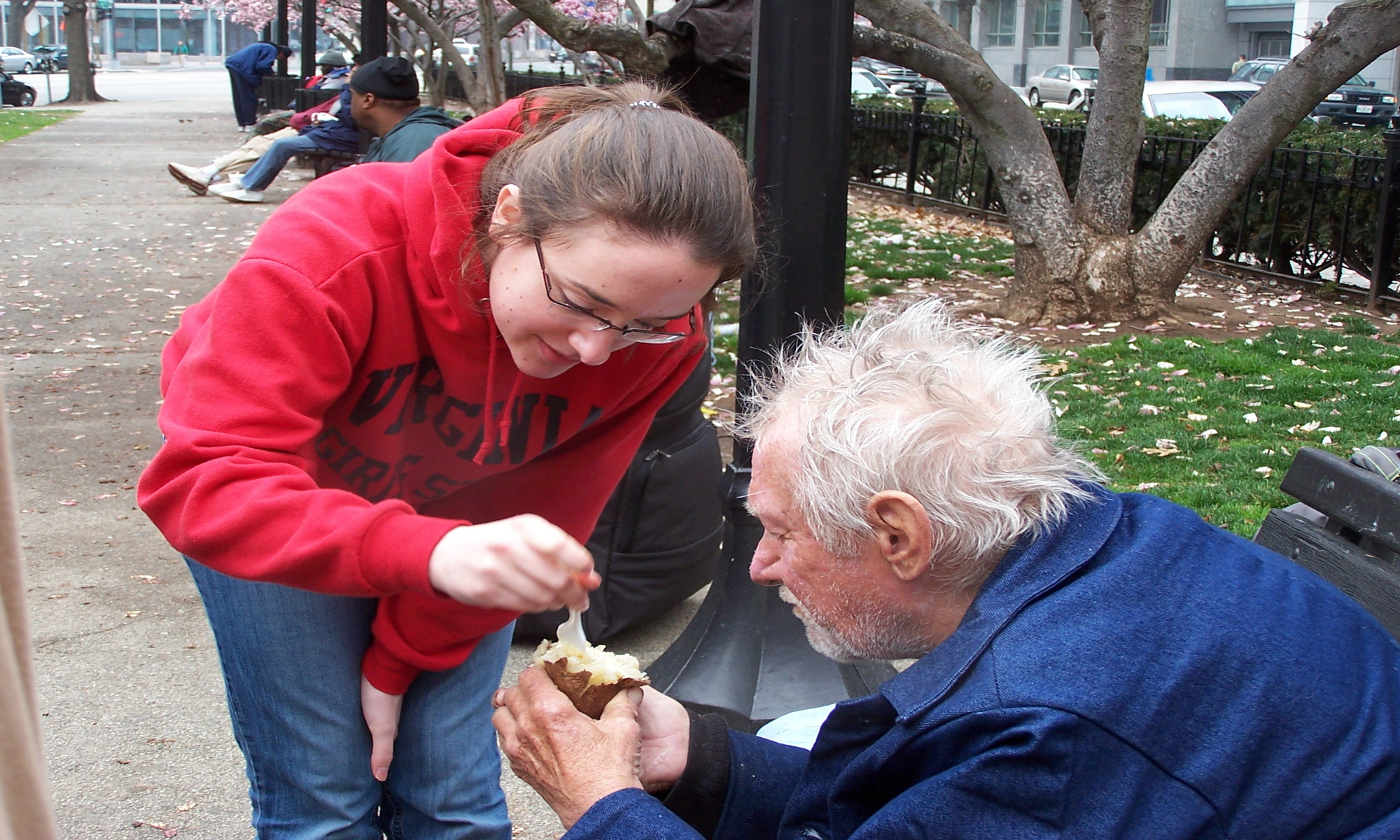 The one aspect of TOP’s ministry that has the greatest impact on the poor and on our volunteers can’t be measured or quantified, but it truly changes lives. It’s friendship.
The one aspect of TOP’s ministry that has the greatest impact on the poor and on our volunteers can’t be measured or quantified, but it truly changes lives. It’s friendship.
Homeless and poor people spend much of their lives dodging the boulders that the world throws at them. When this happens day after day, they feel tired and beaten. Often they are ignored or herded like cattle in order to receive the goods and services that keep them alive. It’s dehumanizing to say the least. Just having somebody who will look them in the eye, smile, or give an affirming touch is enough to change their week or their lives. This encouragement can happen at a first meeting. But when young people and the poor develop deeper friendships, incredible things can happen.
The benefits of friendship with the poor and homeless go beyond being a bright spot and having warm, fuzzy feelings. For some homeless people, friendships with teens have created a positive accountability. They don’t want to let their young friends down. That sense of obligation has helped several men I know kick a drug or alcohol habit and stay clean.
Another benefit to homeless and poor people is having someone outside their peer group to cheer them on and encourage them when they are down. Here is where teens really shine in their ministry. They don’t judge. They don’t condemn. They listen, try to understand and offer hope. When a homeless man gives up after being knocked down for the fourth or fifth time in a year, that word of encouragement from a teen can be enough to get him to try again.
Through our friendships we earn the right to share the good news of Jesus. Many nonbelieving homeless and poor people have heard the gospel or read a tract, but they haven’t seen Jesus at work in the people who serve them. Once they see perfect agape love in action, many are more receptive to hearing about the source of that powerful love.
Never underestimate the power of friendship. It’s the key that opens the door to transformation and hope.
God’s grace to you,
Steve Jennings, Executive Director
Teens Opposing Poverty
